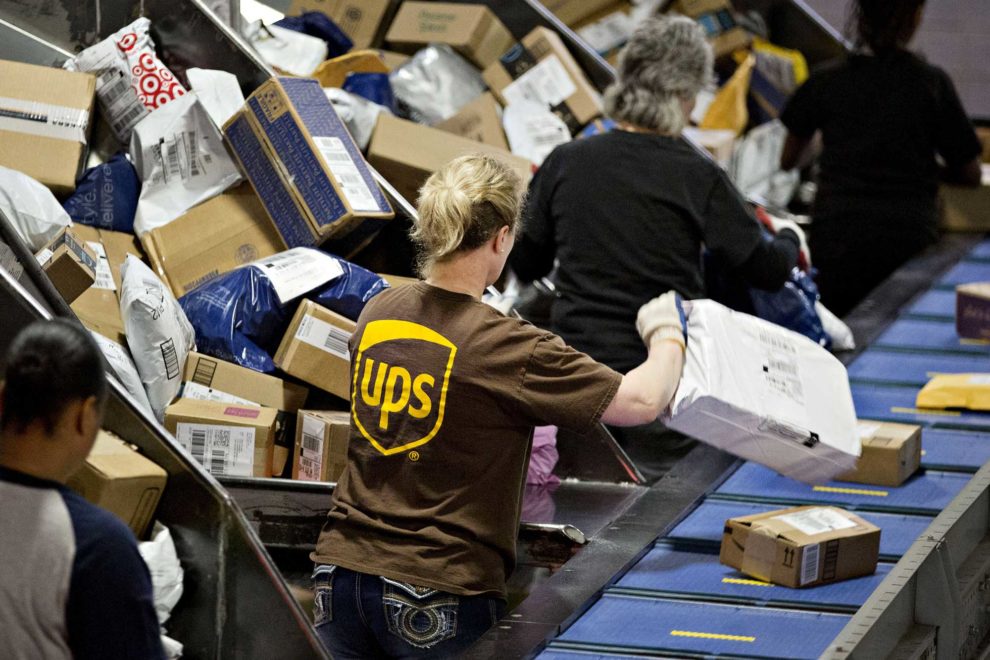
Employees sort packages at the United Parcel Service (UPS) Chicago Area Consolidation Hub in Hodgkins, Illinois.
Daniel Acker | Bloomberg | Getty Images
United Parcel Service’s strong earnings report Tuesday was overshadowed by news of the retirement of Chief Operating Officer Jim Barber, who was long viewed as the company’s next CEO.
Barber, who started with UPS as a driver 35 years ago, was appointed CEO in March 2018.
Barber is ending his 35-year run with UPS. He started out with the company as a delivery driver, and was appointed COO in 2018.
“That is the normal progression cycle that we have at UPS. People will normally spend their entire careers,” Chairman and CEO David Abney said Tuesday on CNBC’s “Squawk on the Street.”
Shares of Atlanta-based UPS fell by about 3% after UPS announced Barber’s retirement in December — despite a 14% surge in third-quarter profit that beat analysts’ earnings-per-share estimates by a penny at $2.07 a share, according to data compiled by Refinitiv. The company’s revenue during the three months ended Sept. 30, however, fell short of forecasts at $18.32 billion, compared with $18.35 billion expected.
Barber oversees the company’s global small package, freight, supply chain, freight forwarding, and engineering, and was instrumental in the company’s turnaround.
“Investors assumed he was going to be the next CEO and this caught us by surprise. Unfortunately, the market does not like surprises,” Seaport Global analyst Kevin Sterling said.
UPS said volume for its Next Day Air delivery within the U.S. rose by about 24% in the quarter ended Sept. 30, benefiting from strong e-commerce demand and rival FedEx’s breakup with online retailer Amazon.com this summer.
“It’s Amazon, but it’s beyond Amazon,” Abney said in a telephone interview with Reuters.
“Companies are competing on time. Next Day has become the standard. We see it in our Next Day Ground and our Next Day Air,” said Abney, who noted that the company’s multi-billion-dollar investments in network upgrades have shaved per-package costs down 2.5%.
Despite the advantage, investors remain wary of the potential ill-effects of the ongoing US-China trade war on the company as it gears up for what could be its biggest holiday season in history.
On an unadjusted basis, UPS’ net income rose 16% to $1.75 billion, or $2.01 per share, in the third quarter from the same period last year.
The company announced plans Monday to develop a drone delivery service for prescription drugs with CVS Health.
Read UPS’s earnings release here.
Reuters News contributed to this report.












